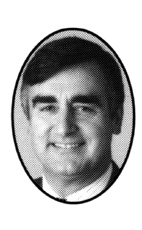Mr. Speaker, with all due respect for the work of the RCMP, one nevertheless wonders how the RCMP could be expected to know what is happening down there if it does not go there.
I also wonder how we can reconcile the minister's answer with what was said by the person who appeared on television last night and claimed to have been an eye witness to the facts I just reported.
The Prime Minister says: Name names. Who, who? Well I can name Minister Claude Ryan of the Quebec government who, for many years, was responsible for the Sûreté du Québec and who said yesterday he had known for years that organized crime and the warriors were working together. Perhaps the RCMP should talk to the Sûreté du Québec or the Solicitor General could talk to his Quebec counterparts.
Once again, my question to the Solicitor General is this: Could he tell the House who in the federal government, at the political level or otherwise, ordered the cancellation of a major police operation planned last December by the RCMP and the Drug Enforcement Agency on reserve territory? Who cancelled the operation? There was a government here last December.

